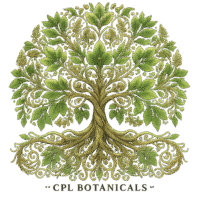Meta Description: Tired of relying solely on medications to manage your blood pressure? Discover which herbs have been shown to support healthy blood pressure levels—safely, naturally, and effectively.
Introduction: What if Blood Pressure Could Be Balanced Gently?
If you’ve been told high blood pressure runs in your family… or that you’ll need medication for life… you’re not alone.
Hypertension affects nearly half of adults in the U.S., and it’s often labeled the “silent killer” because it can quietly damage the heart, kidneys, and arteries without any noticeable symptoms.
But here’s what most people don’t hear: you may be able to lower and manage your blood pressure naturally—especially in the early stages—by combining lifestyle changes with the right herbs.
Naturopathic coaching doesn’t replace medical care, but it can offer gentle, science-backed support to help you work with your body instead of against it.
Understanding the Root Causes of High Blood Pressure
High blood pressure (also called hypertension) isn’t just about salt intake—it’s a complex response to ongoing internal stress and inflammation.
Common contributors include:
- Chronic stress or anxiety
- Insulin resistance and blood sugar imbalances
- Inflammation and oxidative stress
- Poor circulation or lymph stagnation
- Kidney or liver overload
- Diets high in processed food, alcohol, or synthetic additives
- Sedentary lifestyle
These are all areas that herbs—and targeted nutrition—can help support.
Top Herbs That Help Lower Blood Pressure Naturally
1. Hawthorn (Crataegus spp.)
One of the most well-known heart herbs, hawthorn has been used for centuries to strengthen the cardiovascular system. It helps dilate blood vessels, improve blood flow, and may reduce blood pressure over time.
- Best used as a tea or tincture
- Safe for long-term use
- May take several weeks to show effects
2. Hibiscus (Hibiscus sabdariffa)
This beautiful, tart flower has been shown in clinical trials to lower both systolic and diastolic blood pressure—sometimes as effectively as prescription drugs¹.
- Drink as a cold or hot tea, 1–2 cups daily
- Also supports cholesterol and blood sugar
- High in antioxidants like anthocyanins
3. Garlic (Allium sativum)
Garlic helps relax blood vessels and improve circulation. It also supports cholesterol balance and immune health.
- Raw garlic is most potent
- Aged garlic extract is often used in studies
- May interact with blood thinners—consult if taking medication
4. Olive Leaf (Olea europaea)
Olive leaf extract has demonstrated powerful effects on both blood pressure and blood sugar regulation. It helps reduce arterial stiffness and inflammatory markers².
- Typically used in tincture or capsule form
- Pairs well with hawthorn for heart health
- Also antimicrobial and liver-supportive
5. Celery Seed (Apium graveolens)
Traditionally used in Chinese medicine, celery seed may help reduce tension in the vascular system and act as a mild diuretic³.
- Often used in capsule or tincture form
- May be especially helpful when water retention is part of the picture
- Avoid if allergic to celery
How to Use These Herbs Safely
- Start low, go slow. Herbal effects are gentle but cumulative. Give them time to work.
- Choose one or two to begin—preferably as tea or tincture, and observe how your body responds.
- Check with your doctor or pharmacist if you’re already taking blood pressure medication—especially with garlic, hawthorn, or olive leaf.
- Use quality sources. Organic, fresh-dried herbs or high-quality extracts matter. Avoid powdered fillers or poor-quality capsules.
Lifestyle Tips to Maximize Herbal Benefits
Herbs work best when paired with healthy lifestyle shifts. Try incorporating:
- Daily movement: walking, stretching, rebounding, or breathwork
- Magnesium-rich foods: leafy greens, pumpkin seeds, avocado, cacao
- Lowering refined carbs and sugar to reduce insulin spikes
- Quality hydration: clean water with trace minerals
- Stress relief practices: breathwork, music, forest bathing, creative expression
These steps lower the total stress load on your vascular system—and let herbs do their job more effectively.
Final Thoughts: Support, Not Suppression
The goal isn’t to “attack” your blood pressure—it’s to support the organs and systems that regulate it.
With gentle herbs, supportive food, and simple lifestyle strategies, it’s possible to help your body do what it was designed to do: maintain balance.
If you’re in the early stages of high blood pressure or looking to support your cardiovascular system naturally, herbs can offer a safe, effective foundation for long-term health.
Want help creating your own heart health and blood pressure support plan?
I offer personalized naturopathic coaching that includes herbal protocols, food strategies, and mind–body tools to support blood pressure naturally and holistically.
Learn more about working with me contact me at cplange@cplbotanicals.com
References
- McKay, D. L., & Blumberg, J. B. (2007). A review of the bioactivity and potential health benefits of hibiscus tea (Hibiscus sabdariffa L.). Phytotherapy Research.
- Susalit, E. et al. (2011). Olive (Olea europaea) leaf extract effectively lowers blood pressure in patients with stage-1 hypertension: a randomized, double-blind, placebo-controlled, crossover trial. Phytomedicine.
- Houston, M. C. (2005). The role of nutrients, foods, and herbs in the treatment of hypertension. World Journal of Cardiology.

Leave a Reply